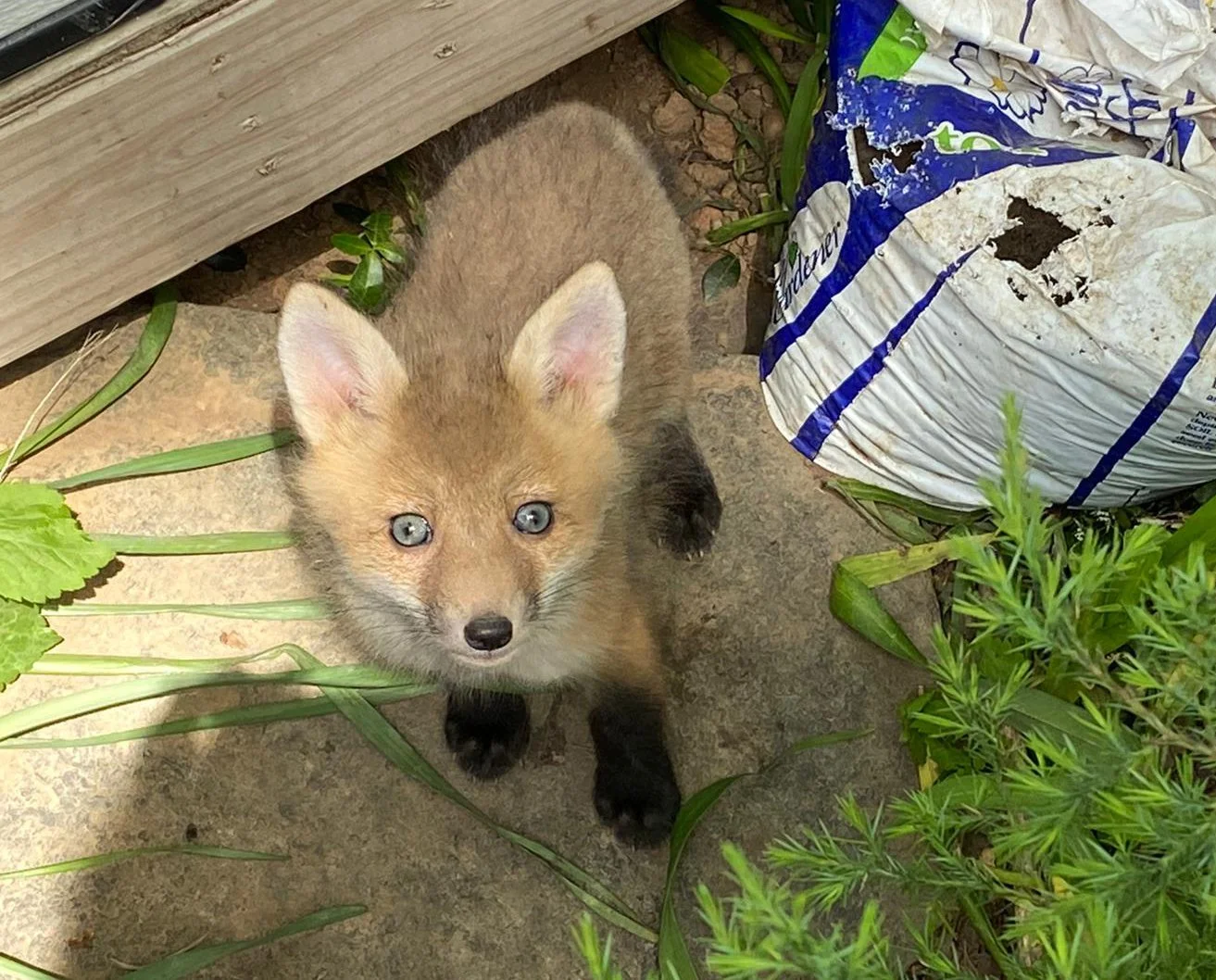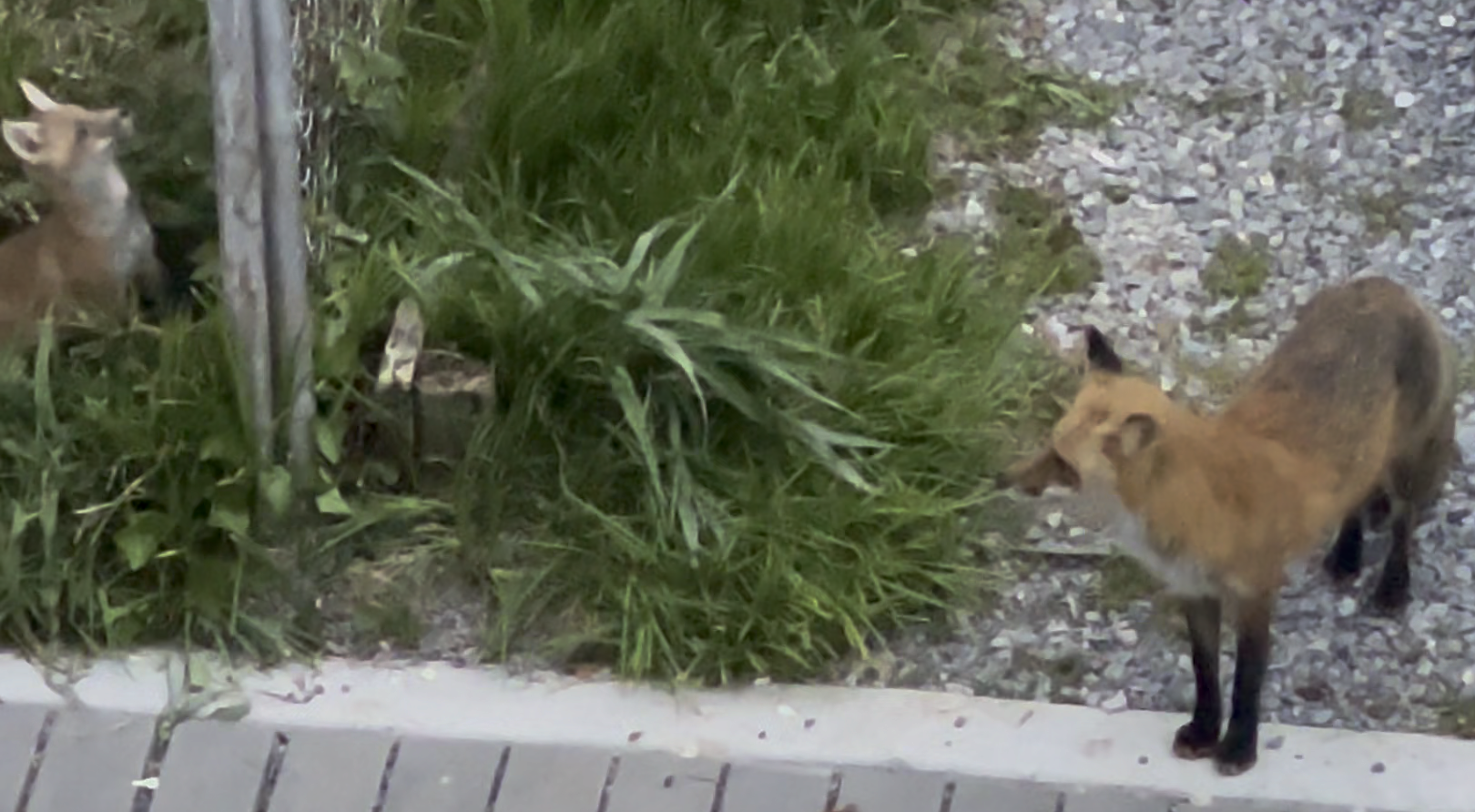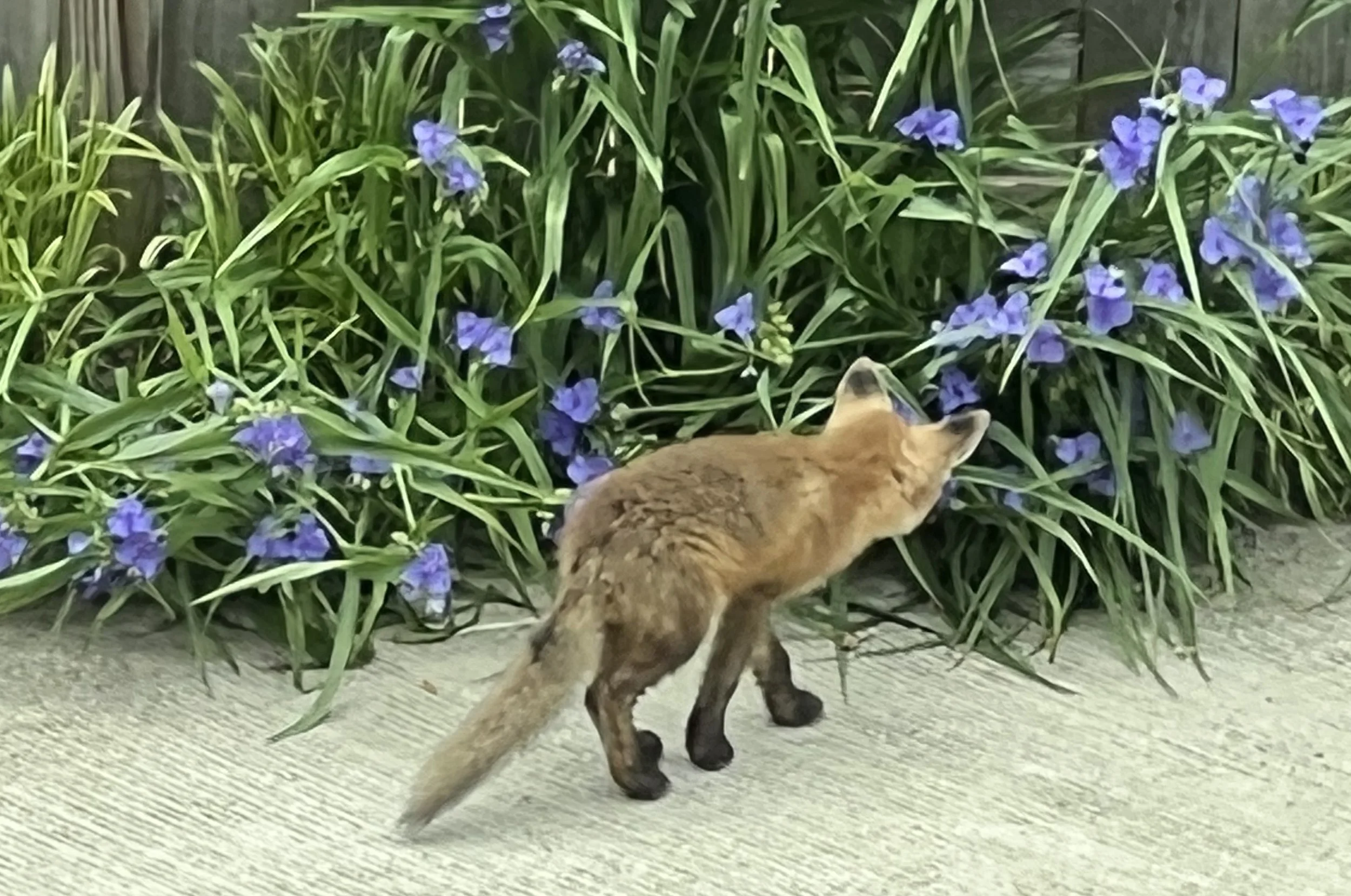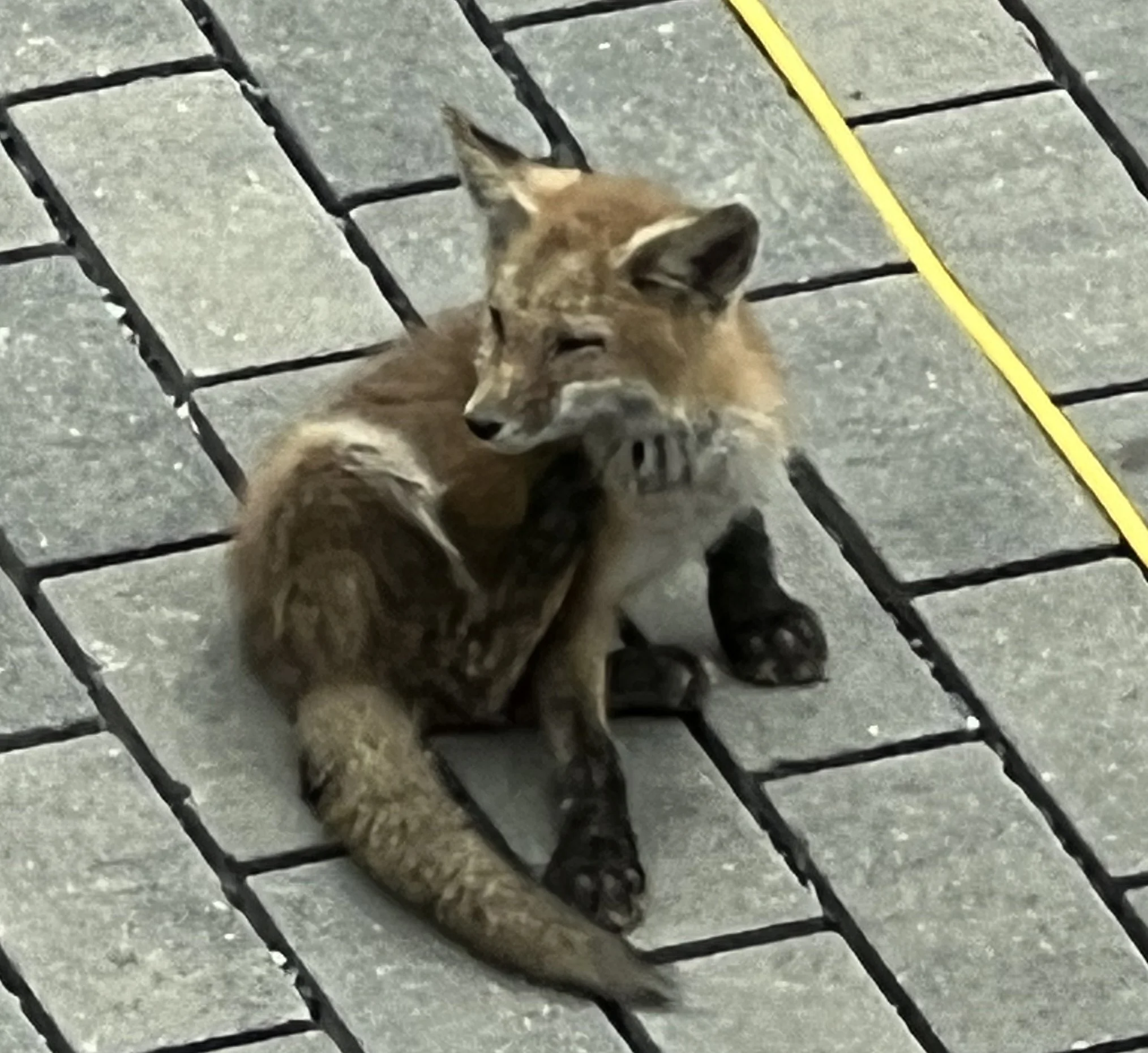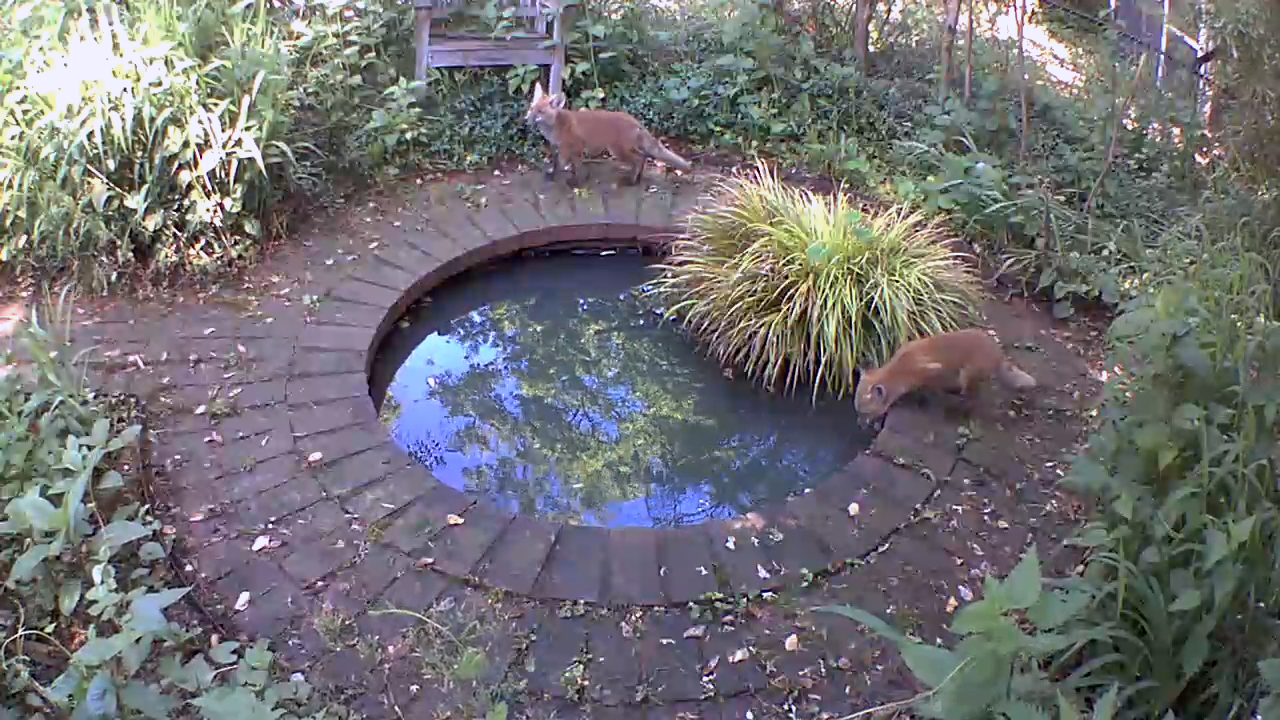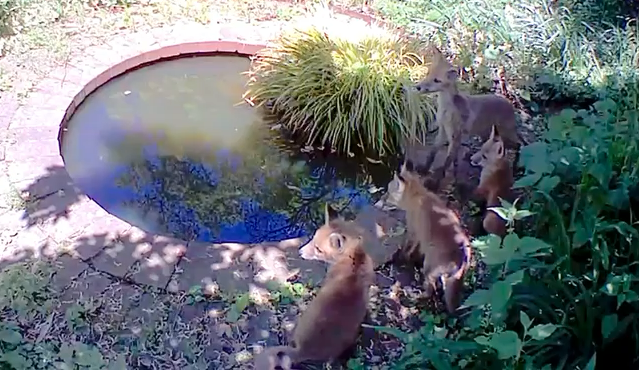Walk on the Wild Side
/a fox emerges from its den underneath a shed on the alley. photo by Janna Schoënfeld.
By Carolyn L. Ehardt
Your 39th Street neighbors were treated in May to a bit of Burleith’s “wild side.” Through multiple late night, dawn, and even daytime sightings, we collectively observed a new family of red foxes (Vulpes vulpes): adult female (“vixen”) and male (“dog” fox) with their five quickly-growing and rambunctious “kits” (also called “pups” or “cubs”). The kits were a source of shared, smile-inducing pleasure, with video capturing their rough-and-tumble play and other shenanigans in our alleyway and organic gardens. With their rusty red fur, white-tipped bushy tails, and distinctive black legs and ears, these are truly dashing. Not to mention, exceedingly cute!
photos by carolyn ehardt unless otherwise noted.
Later in the summer, several of the kits began to wander more widely (which starts to occur at about 10–12 weeks of age), while at least two were still frequently seen in the alley, close to their den and their parents (including the menu of rodents and other items in their omnivorous diet—mostly small mammals, birds, fruits such as berries, and insects—expertly hunted and foraged by the pair).
The various species of fox are a successful lot on a global scale, found in practically every environment and region, and the red fox has been reported to be the most widespread and prevalent carnivore on Earth.
At the local level, their presence is completely dependent on supportive habitat; here in DC, they therefore are found in and around Rock Creek Park. Given that reproducing families such as the one we were observing create their den sites in wooded areas with abundant, diverse food sources, it is the critically important green space extending from Glover Archibald Park, preserved along our alley lots by a restrictive covenant that protects against harmful residential development, that is supporting our resident red fox family, as well as other wildlife and native flora.
We are pleased to be able to share with you photos of these beautiful animals enjoying Burleith with us!
Carolyn Ehardt is a biological anthropologist who conducted conservation ecology field research with endangered primates in Tanzania.
a security camera captures an early-morning drink.
pond photos by patterson clark.

